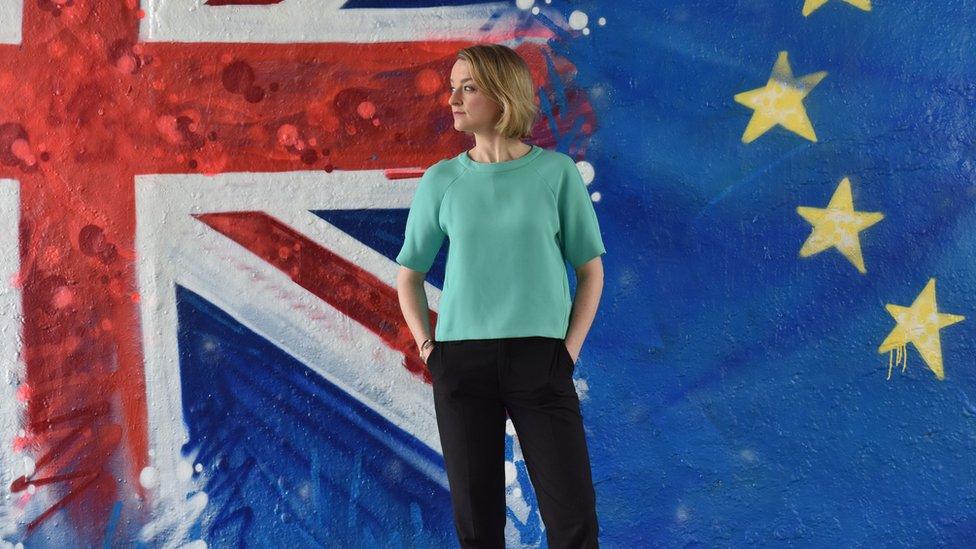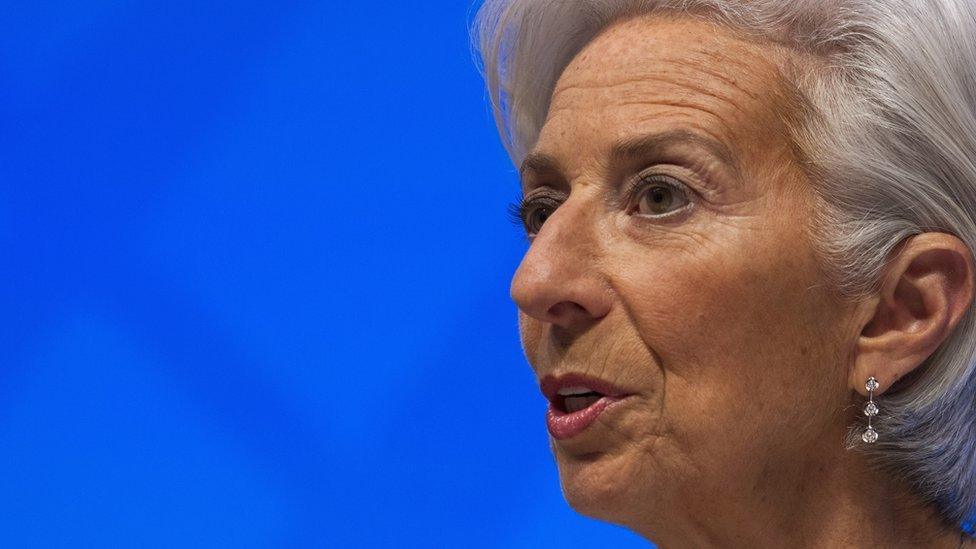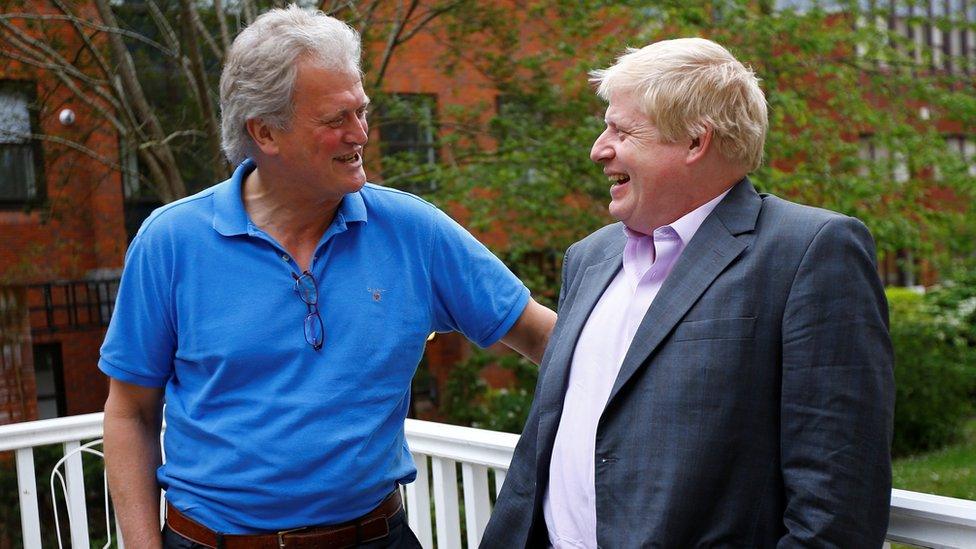EU referendum: Voters want EU facts not fighting
- Published

What is abundantly clear is that David Cameron's ambition that the Tories would be able to debate our membership of the European Union with civility and good grace is shot to bits.
How much of it is faux outrage for the purposes of trying to win the referendum is another question. We'll only know the answer to that after the vote.
What is a lot less clear is whether this pretty violent Tory bickering is helping a single member of the public make up their mind about how to vote in the referendum, now less than a month away.
My unscientific queries with voters around the country and strong hunch tell me in fact the scraps are putting voters off. Some pro-EU Labour MPs fear their natural supporters might not bother to vote at all because it doesn't feel like their fight.
But what voters across the spectrum do say they desperately want are the facts.
If you take both sides of the campaign at face value, you'd be forgiven for feeling utterly confused. There are hardly any facts they don't dispute. Indeed, they both have, with differing severity, had a public ticking off from other politicians at the cross-party Treasury Select Committee for how they are using the figures.

IMF managing director Christine Lagarde explains why she believes Britain should stay in the EU
And we probably shouldn't be that surprised. Politicians disagree on the risks and the statistics: they always do. You know what they say about statistics, after all.
But in a programme I present on BBC2 we try to answer the big question the campaigns, not just the Tory party, are scrapping over. Would we be worse off or better off if we leave the EU?
Boris Johnson and George Osborne go head-to-head - well, as close as any senior Conservatives have in the campaign - by at least agreeing to appear in the same documentary.
Big names like Christine Lagarde - the boss of the IMF - and the heads of BMW, Airbus, and Lloyds of London, talk of their genuinely-held fears about what would happen if we leave the EU.
But Lagarde admits the IMF has been wrong before. And Tim Martin, boss of the massive pub chain, JD Wetherspoon, tells me why, in his view - and using blunt agricultural language - they are all talking nonsense.

Vote Leave's Boris Johnson and JD Wetherspoon chairman Tim Martin also appear on the programme
While they fight it out, what we have to be honest about, though, is that this time, we're all being asked to choose between a hypothetical status quo and staying in an EU that is evolving.
It's not just that the wealth of the country is influenced by many other factors, but that the EU is in trouble, struggling to find comprehensive solutions to problems with the single currency, scrabbling for lasting answers to the migration crisis.
In any election, you're asked to take a punt on the future, but the warnings and predictions about what would happen if we leave the EU are all educated guesses, too. Leaving probably wouldn't be Armageddon or Nirvana, whatever the politicians tell you. But tonight we explore what the likely consequences could be, as the nation makes up its mind.
It's true most of the evidence suggests we'd be worse off in the short term if we choose to leave. But when it comes to the years and decades ahead, it's much harder to predict.
How we earn our living as a country is important, of course, but it's up to all of us to mull that over with the other parts of being in the European club.
This is a personal decision and a political one about much more than the pounds and pence - not just whether we're richer or poorer, but who we are as a country, and who's in charge.
Britain and Europe: For Richer for Poorer, is on BBC2 at 21:00 BST on Tuesday 31 May and available to watch later via the BBC iPlayer.